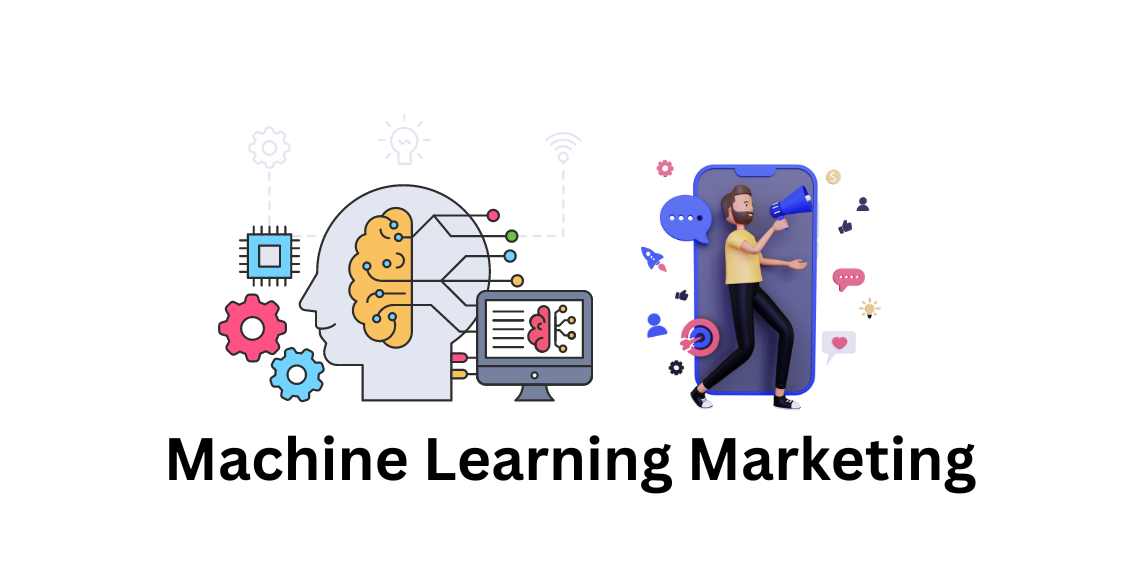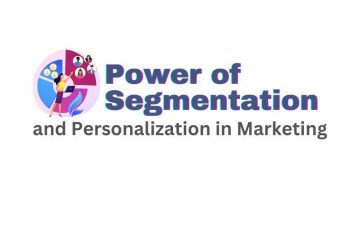Introduction to Machine Learning Marketing
Over the past few decades, digital marketing has undergone a massive transformation. The introduction of the internet and various technological advancements has allowed marketers to target audiences with unprecedented precision, analyze user behavior, and measure campaign results with higher accuracy. As the industry continues to evolve, more advanced tools, such as Machine Learning Marketing, are needed to drive personalization and boost customer engagement.
The Role of Machine Learning in Modern Marketing
Machine Learning (ML) is a subset of Artificial Intelligence (AI) that focuses on developing algorithms and models capable of improving decision-making and predicting outcomes based on data analysis. Machine Learning Marketing utilizes these capabilities to tailor marketing strategies and deliver a more personalized experience to consumers. By doing so, businesses can increase engagement and conversion rates, ultimately leading to higher profits.
Understanding Machine Learning Marketing
How Machine Learning Works in Marketing
In the context of marketing, Machine Learning algorithms work by analyzing vast amounts of consumer data, identifying patterns, trends, and preferences that can inform marketing decisions. By processing and learning from this data, ML algorithms can predict user behavior, segment audiences, and optimize marketing campaigns for better results.
Key Components of Machine Learning Marketing
Machine Learning Marketing consists of several key components:
- Data collection and processing: Gathering and organizing consumer data from various sources to be used in the machine learning models.
- Feature extraction and selection: Identifying relevant features from the collected data and selecting the most important ones for model training.
- Model training and evaluation: Creating and refining machine learning models using the selected features, and evaluating their performance.
- Optimization and deployment: Fine-tuning the models for optimal performance, and deploying them to support marketing strategies.
- Continuous improvement through feedback loops: Gathering new data and feedback from users to further refine and improve the models.
Advantages and Challenges of Machine Learning Marketing
Advantages of Machine Learning Marketing include:
- Improved targeting and segmentation: ML algorithms can analyze consumer data and identify specific segments to target more effectively.
- Enhanced personalization: By understanding individual consumer behavior, marketers can tailor content, offers, and messages to resonate with their audience.
- Data-driven decision-making: Machine Learning Marketing provides data-driven insights, enabling marketers to make more informed decisions.
- Optimized marketing budget allocation: ML can optimize the allocation of resources to maximize the return on investment.
- Increased efficiency and ROI: Machine Learning Marketing can lead to more efficient campaigns and higher returns on investment.
Challenges in implementing Machine Learning Marketing include:
- Access to high-quality data: For ML algorithms to be effective, they require access to large volumes of high-quality data.
- Privacy concerns and regulatory compliance: Data privacy regulations, such as GDPR and CCPA, may limit the types of data that can be collected and processed.
- The need for skilled professionals: Implementing Machine Learning Marketing requires expertise in data science and programming.
Read Also: Unleashing the Power of RFM Analysis in Advertising with AI: A Comprehensive Guide
Personalization: A Game Changer in Marketing
The Importance of Personalization in Today’s Market
In today’s competitive market, consumers increasingly expect personalized experiences that cater to their unique preferences and needs. Personalization in marketing helps businesses stand out, increase customer loyalty, and drive higher conversion rates. By offering personalized content, offers, and messages, businesses can more effectively engage their target audience and encourage repeat transactions.
The Role of Machine Learning in Personalization
Machine Learning enables marketing professionals to deliver more relevant and targeted experiences by analyzing vast amounts of data and predicting user preferences. By understanding individual consumer behavior, marketers can create personalized content, offers, and messages that resonate with their audience, ultimately resulting in increased customer satisfaction and higher conversion rates.
Several Machine Learning techniques can be employed for personalization, including:
- Collaborative filtering: Analyzing user behavior and preferences to make personalized recommendations based on the behavior of similar users.
- Content-based filtering: Recommending items or content based on the attributes and features of items that a user has previously engaged with.
- Deep learning: Utilizing complex neural networks to discover intricate patterns in large datasets, enabling more sophisticated personalization.
- Natural Language Processing (NLP): Analyzing and processing text data to understand user preferences and provide personalized content recommendations.
Implementing Machine Learning Marketing for Personalization
Identifying the Right Data for Personalization
Successful ML-based personalization relies on high-quality data. To implement effective personalization strategies, businesses must gather information from various sources, such as website analytics, CRM systems, social media, and third-party data providers.
Developing Effective Machine Learning Models
To build effective ML models for personalization, marketers must choose the right algorithms, train and evaluate models using historical data, and fine-tune them to achieve optimal performance. This process often involves trial and error, as well as continuous refinement and improvement.
Integrating Machine Learning with Existing Marketing Strategies
Maximizing the benefits of ML marketing requires integrating it with existing marketing strategies, such as email marketing, social media marketing, and content marketing. This integration ensures that ML-driven personalization is consistent across all channels and touchpoints, providing a seamless and cohesive customer experience.
Case Studies: Success Stories of Machine Learning Marketing
Retail Industry: Personalized Recommendations
E-commerce giants like Amazon have effectively used Machine Learning to offer personalized product recommendations based on user behavior. By analyzing customer browsing and purchase histories, ML algorithms can suggest relevant products that a customer is more likely to be interested in, leading to increased sales and customer satisfaction.
Entertainment Industry: Tailored Content Suggestions
Streaming platforms such as Netflix and Spotify utilize Machine Learning to provide tailored content suggestions that cater to individual user preferences. By analyzing viewing and listening histories, ML algorithms can recommend movies, TV shows, or songs that a user is more likely to enjoy, creating a more engaging and satisfying user experience.
Travel Industry: Customized Experiences
Travel companies like Expedia and Airbnb use Machine Learning to offer personalized travel recommendations and accommodation options based on user preferences and past bookings. By analyzing customer data, ML algorithms can suggest travel destinations, activities, and lodging options that cater to individual tastes, enhancing customer satisfaction and encouraging repeat bookings.
Preparing for the Future of Machine Learning Marketing
Staying Ahead with Machine Learning Trends
To stay competitive in the evolving marketing landscape, marketers must keep up with the latest Machine Learning trends and technologies. Examples of emerging trends include reinforcement learning, transfer learning, and generative models. By staying informed of these advancements, businesses can better adapt to changes and maintain a competitive edge.
Ethics and Regulations in Machine Learning Marketing
As Machine Learning Marketing becomes more prevalent, ethical considerations and regulatory compliance become increasingly important. Businesses must strike a balance between personalization efforts and privacy concerns while adhering to data protection laws such as GDPR and CCPA. By doing so, companies can foster trust with their customers and maintain a positive brand reputation.
Developing Skills for Machine Learning Marketing
To successfully implement Machine Learning Marketing strategies, businesses need to invest in developing the necessary skills among their marketing teams. This includes knowledge in data science, Machine Learning algorithms, programming languages, and data visualization tools. By cultivating these skills, marketers can more effectively harness the power of Machine Learning to drive personalization and enhance customer experiences.
Conclusion: Embracing Machine Learning Marketing for Personalization Success
Machine Learning Marketing is transforming the way businesses approach personalization, offering new opportunities to connect with customers on a deeper level. By embracing ML technologies and integrating them into existing marketing strategies, companies can deliver highly personalized experiences, increase customer engagement, and ultimately, drive higher conversion rates.
As the future of marketing continues to be shaped by Machine Learning, businesses must adapt and evolve to stay ahead in the competitive landscape. By investing in the right tools, data, and skills, companies can unlock the full potential of Machine Learning Marketing and secure their place in the future of personalization.

Hello, I’m Ali Raza, the brain behind Digital Realm Trends.
Hailing from the vibrant world of digital marketing, I’ve honed my skills over years. Based on my experience, I’m here to unravel the complexities of digital marketing, analytics and paid marketing, crafted for individuals like you. Join me in uncovering the power of digital marketing tools and strategies, fueled by experimentation and insights.




